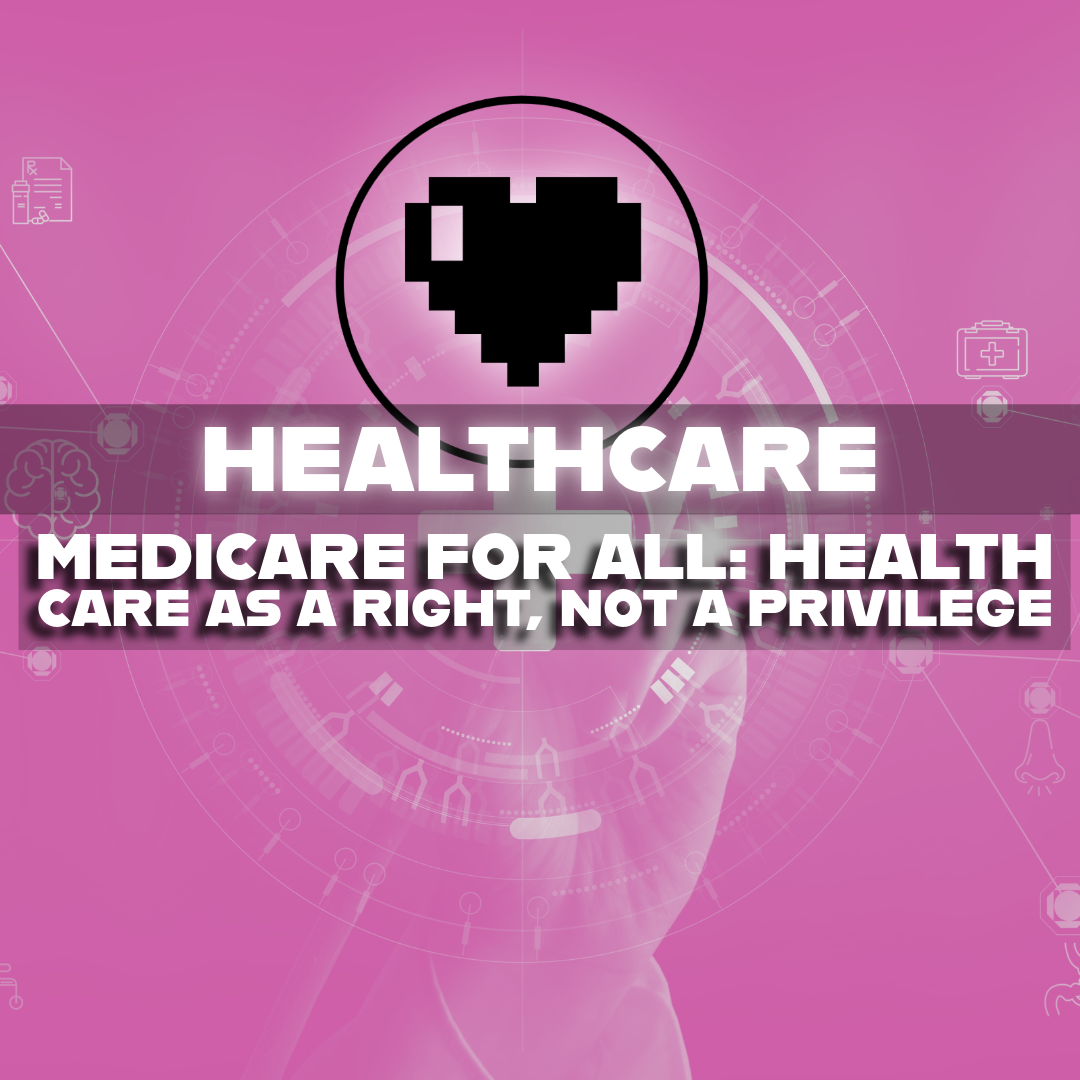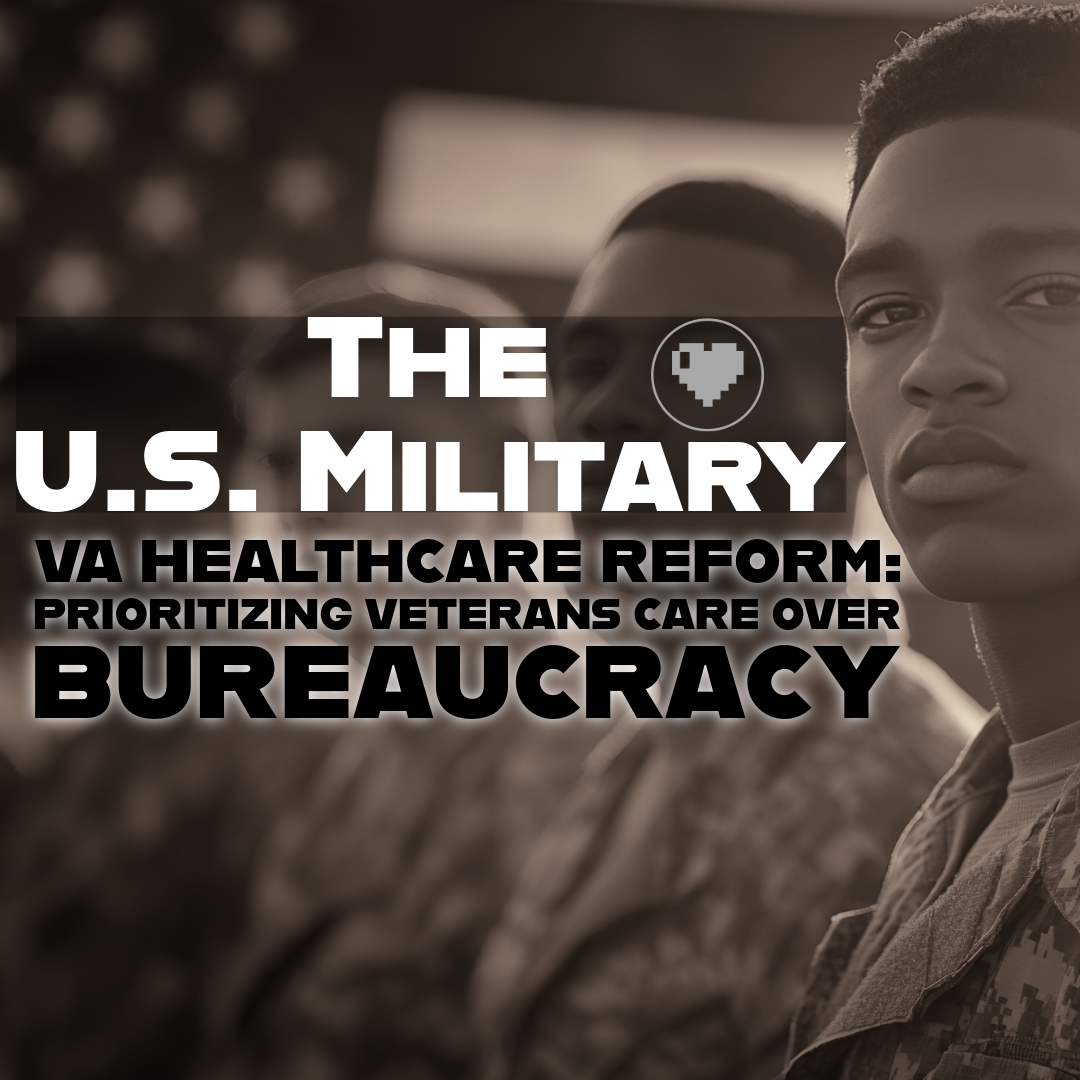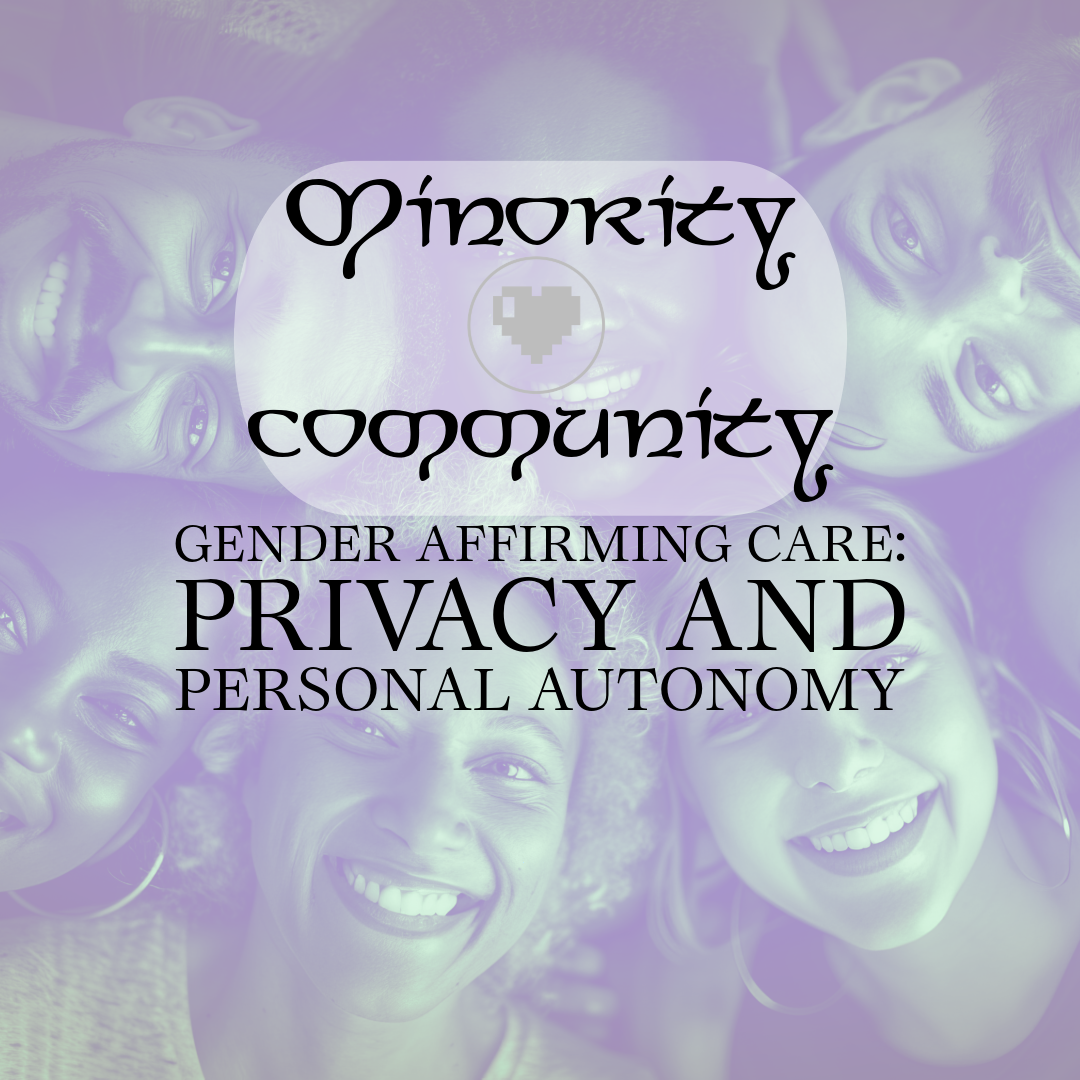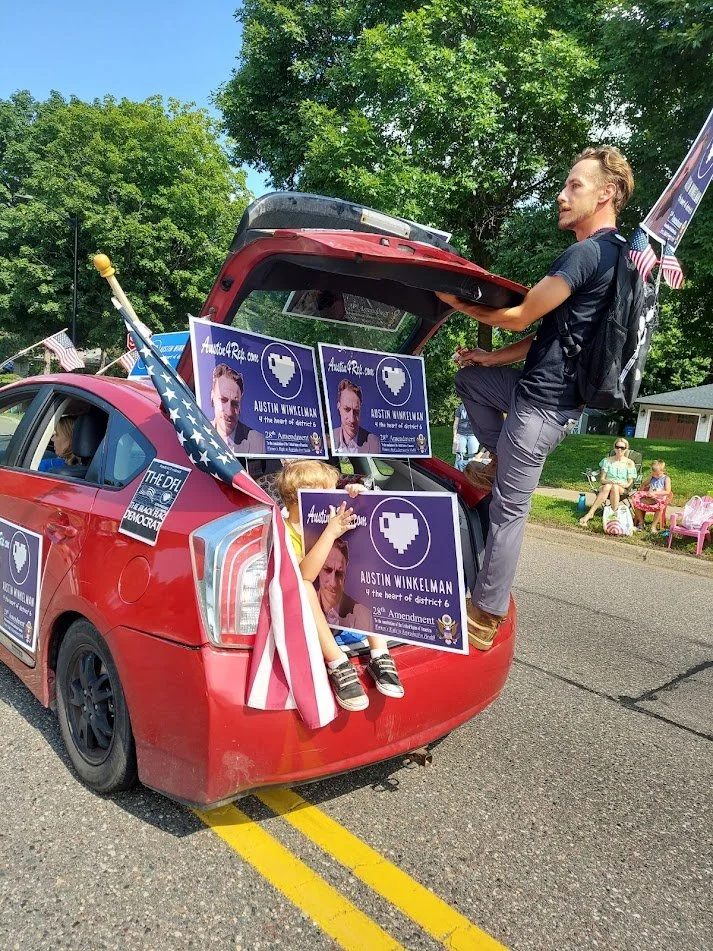Search is now available for the website, it is getting massive.
Use this if you are looking for specific topics titles or use keywords like:
Climate, Democracy, Education

Medicare for All: Health Care as a Right, Not a Privilege
I fully support the Medicare for All Act, which seeks to establish a national health insurance program based on a single-payer model. This system would provide comprehensive health care coverage to all Americans, ensuring they can access care without being charged at the time of service.
The program’s key goal is to eliminate restrictive networks, premiums, deductibles, co-pays, and surprise medical bills—creating a more equitable, efficient health care system that prioritizes patients over profits. By guaranteeing health care as a basic right for all people, we take a crucial step toward a healthier, fairer society.

Food Programs: Expanding Access to Essential Nutrition
Increased Funding for Community Food Shelves: Community food shelves need more funding to provide higher-quality, longer-lasting food. Too often, the food available at these shelves is near expiration or requires immediate freezing, making it difficult for families to rely on these programs for consistent, healthy meals. By increasing support, we can ensure food shelves are stocked with fresh, nutritious food that serves the community’s needs rather than acting as a repository for grocery store waste.

Unions and Labor: Protecting Workers' Rights and Safety
Unions alone cannot be responsible for ensuring workplace safety—that is where strong oversight and regulation come in. To protect all workers, we must improve and fully fund the Occupational Safety and Health Administration (OSHA) to ensure that workplace safety standards are enforced consistently across industries and regions.
Increased Funding for Inspections: Provide OSHA with the resources needed to conduct frequent and thorough workplace inspections to prevent accidents and enforce compliance.
Modernized Safety Standards: Update outdated regulations to reflect the realities of today’s work environments, particularly in industries prone to accidents and health risks.
Whistleblower Protections: Strengthen protections for workers who report unsafe conditions, ensuring they can speak out without fear of retaliation.

Police and Law Enforcement: Accountability, Trust, and Community Protection
Invest in training, mental health support, and community outreach programs to foster positive interactions between officers and the public.
Reward officers who demonstrate integrity, compassion, and respect for the communities they serve.
Root Out Abuse of Power:
Strengthen accountability measures to identify and remove officers who engage in misconduct or abuse their authority.
Implement independent oversight boards with community representation to review complaints and hold departments accountable.
Rebuild Community Trust:
Increase funding for community policing initiatives that prioritize relationship-building over intimidation.
Expand transparency through body camera policies and regular reporting on officer conduct.

The Military: Strength Through Service and Responsibility
Invest in Military Readiness at Home:
Improve the quality of training, support services, and resources for active-duty personnel.
Ensure our forces are prepared to respond effectively when needed, without overextending their capacity.
Our responsibility to the military doesn’t end when service members return home. To sustain an all-volunteer force and ensure national security, we must:
Improve Access to Health Care and Mental Health Services:
Ensure that veterans receive timely, high-quality medical care, including mental health services to address PTSD, depression, and other service-related conditions.



Gun Smuggling into Mexico
Close Loopholes in Gun Regulations: Strengthen firearm regulations to prevent illegal purchases intended for smuggling, including cracking down on "straw purchases" where individuals buy firearms on behalf of someone prohibited from owning them.
Enhance Border Security Measures: Implement stricter checks at border crossings, including reviewing the "Nothing to Declare" line to ensure that smugglers cannot easily bypass inspections. By investing in technology and additional training for customs officers, we can increase detection rates for illegal firearm shipments.

Assault-Style Weapons: Striking a Balance Between Freedom and Safety
this issue requires a thoughtful balance between individual freedom and public safety. We must uphold the principles of the Second Amendment while taking meaningful steps to prevent preventable tragedies. The goal is simple: to protect innocent lives without infringing on the rights of law-abiding citizens.
Public Safety Measures:
Introduce restrictions that prevent high-risk individuals from accessing assault-style rifles without creating unnecessary burdens for responsible gun owners.
Strengthen background checks, particularly for firearms that are capable of significant destructive force.
Respect for Service and Training: I believe that responsible gun ownership also extends to recognizing the needs of those in professions dedicated to protecting our nation. Members of the U.S. Armed Forces, state militia, and law enforcement undergo extensive training and make great personal sacrifices to safeguard our country.

Redefining Guns in Law: From Form to Function
Reclassifying Modifications: A form-to-function redefinition would allow us to reclassify modifications that significantly alter how a firearm operates. For example:
Modifications that enable a handgun to fire an entire magazine with one trigger pull would be illegal based on their increased fire rate, as this function mimics that of fully automatic weapons.
Closing Loopholes in Current Law: By focusing on function over form, we can address gaps in gun regulations and prevent dangerous modifications from being marketed and sold as legal "workarounds." This approach doesn’t target responsible gun owners—it targets dangerous modifications that turn legal firearms into more destructive weapons.
Maintaining Respect for the Second Amendment: This redefinition would not ban legal firearms or prevent responsible gun ownership. Instead, it focuses on preventing abuse by regulating modifications that exceed acceptable standards for safety and public use.

Conceal and Carry Reciprocity: Expanding Rights with Responsibility
This would prevent individuals from being penalized simply because they cross state lines, while ensuring that all concealed carriers meet reasonable standards for safety and responsibility.
A National Database for Verification:
Implement a secure, law enforcement-only database that allows officers to verify whether an individual has a valid conceal and carry permit.
This database would reduce ambiguity during interactions with law enforcement while protecting individual privacy and preventing unnecessary complications.

Red-Flag Laws: A Balanced Approach to Safety and Rights
By ensuring that these protections include due process, transparency, and timely reviews, we can strike a balance between public safety and personal liberty. Supporting individuals in crisis helps protect both them and the community while upholding the principles of fairness and justice.

Systemic Racism: Dismantling Injustice Without Creating New Divides
If we are serious about building a society free of systemic racism, we must commit to approaches that foster unity and fairness. Addressing racism should be about creating opportunity and equality, not perpetuating new cycles of blame and division.
By dismantling harmful systems from the past while resisting the temptation to create new ones, we can build a more inclusive future for all Americans. The goal should always be to promote dignity, fairness, and mutual respect—ensuring that every individual has the opportunity to thrive, free from discrimination of any kind.


Gender Affirming Care: Privacy and Personal Autonomy
I view this issue through the same lens as abortion rights—it is fundamentally a matter of privacy. No one—not the government, not outside voices—has the right to interfere with an individual’s medical care or the decisions they make in consultation with their physician.
Laws that restrict or ban gender-affirming care for any individual, regardless of age, represent a dangerous form of government overreach. These laws undermine the doctor-patient relationship, sow distrust in the healthcare system, and harm individuals seeking medically necessary care.

Protecting Marriage Equality: Fighting for Justice and Respect
When marriage equality was being debated in the United States, I had the opportunity to speak on behalf of my sister at the Delano, MN City Hall. That experience was eye-opening—it taught me that persuasion is stronger than fear-mongering and that reasonable people can reach reasonable conclusions when presented with accurate, compassionate information.
LGBTQ+ individuals deserve the same respect, dignity, and rights as anyone else. The ability to marry the person you love is not just a legal matter—it’s about recognizing our shared humanity. Marriage equality is reasonable, rational, and, more importantly, it is just.

Self-Reflection on LGBTQ+
This isn’t just an abstract issue for me—it’s personal. My sister has been an openly gay woman for as long as I can remember, and my son, who identifies as a woman, is navigating their journey toward transitioning. These experiences have given me insight into the importance of acceptance, empathy, and support for those seeking to live authentically.
I may not fully understand every issue at play, but I can promise one thing: I will listen to the voices of the LGBTQ+ community. Their perspectives matter—not just to me personally, but to the progress of our entire nation.

The War on Drugs: Shifting from Punishment to Rehabilitation
The war on drugs has undeniably proven to be a failure. Instead of making our communities safer or curbing addiction, it has led to the mass incarceration of individuals often for simple possession without addressing the root causes of substance abuse. It is time for a new approach that focuses on rehabilitation rather than punishment.

Marijuana Reform: Federal Legalization
Legalizing marijuana at the federal level presents a unique opportunity to foster economic prosperity, increase tax revenue, and redirect public funds toward critical social services. Currently, the enforcement of federal marijuana laws costs approximately $3.6 billion per year. By embracing legalization, we can revamp our resource allocation and reinvest those funds into education, healthcare, and other societal priorities that strengthen our communities.

Legal Immigration: A Modern Approach Rooted in Our Founding Values
In the 21st century, our nation faces an aging workforce and a growing need for skilled workers across all sectors. We must continue to welcome those seeking a better life, but we must also implement effective policies to ensure that immigration is organized, secure, and humane. Proper screening processes and manageable controls will help ensure that those who come here can contribute to and thrive within our society.
Pitch in
Your donation goes directly to essentials like printing literature, digital outreach, and community events. Even small amounts make a huge difference.
This campaign isn’t about me, it’s about us. It’s about proving that working people can take on wealthy interests and win. With your support, we can bring fresh ideas, accountability, and real representation to Congress.
Join in by donating Via our Website
or
Act blue
Just do $1.00






